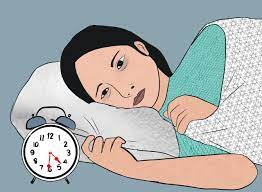Introduction
The COVID-19 pandemic is an ongoing global health crisis caused by the severe acute respiratory syndrome coronavirus 2 (SARS-CoV-2).
The Covid-19 pandemic has brought unprecedented challenges to our world. With each wave of infections, we are reminded of the importance of taking necessary measures to prevent and control the spread of this virus. In this presentation, we will explore the necessary measures that need to be taken for the repetitive attacks of Covid-19 in a compelling and informative manner.
It is crucial to understand that the virus is highly contagious and can be transmitted even by asymptomatic carriers. Therefore, it is essential to take proactive steps to prevent its spread. We will discuss the different measures that can be taken to minimize the risk of transmission and ensure the safety of individuals and communities.
Understanding Covid-19
COVID-19 has a wide range of symptoms, from mild to severe, including fever, cough, difficulty breathing, fatigue, loss of taste or smell, and body aches.
Covid-19, also known as the coronavirus disease, is a highly infectious respiratory illness caused by the SARS-CoV-2 virus. It spreads primarily through droplets generated when an infected person coughs, sneezes, or talks, and can also be transmitted by touching a contaminated surface and then touching one’s face.
Controlling the spread of Covid-19 has been challenging for a number of reasons. Firstly, the virus is highly contagious and can be transmitted by individuals who are asymptomatic or pre-symptomatic. Additionally, there is currently no vaccine or specific treatment for Covid-19, making prevention and early detection crucial in controlling its spread. Finally, misinformation and complacency have led to inconsistent adherence to necessary measures such as social distancing and wearing masks.
Lessons Learned from Previous Outbreaks

Lessons learned from previous outbreaks, such as SARS and MERS, have shown us that early action and preparedness are key to controlling the spread of infectious diseases. In the case of SARS, it was found that countries that implemented aggressive public health measures early on were able to contain the outbreak more effectively than those that did not. Similarly, with MERS, it was discovered that a lack of preparedness and delayed response led to a higher number of cases and deaths.
These lessons can be applied to the current Covid-19 pandemic by emphasizing the importance of early action and preparedness. By implementing measures such as increased testing and contact tracing, along with social distancing and wearing masks, we can work towards controlling the spread of the virus and preventing future outbreaks.
steps to be Taken to prevent repeated attacks
- Vaccination: Get vaccinated against COVID-19 as soon as vaccines are available to you. Vaccination can significantly reduce the risk of severe illness, hospitalization, and reinfection.
- Practice good hand hygiene: Wash your hands frequently with soap and water for at least 20 seconds. If soap and water are not available, use hand sanitizer with at least 60% alcohol.
- Wear a mask: Wear a mask, especially in crowded indoor settings or when you are in close proximity to others who are not from your household. Follow local guidelines and recommendations on mask usage.
- Maintain physical distancing: Keep a safe distance of at least 1 meter (3 feet) from individuals who are coughing, sneezing, or showing symptoms of illness. Avoid crowded places whenever possible.
- Practice respiratory etiquette: Cover your mouth and nose with your elbow or a tissue when you cough or sneeze. Dispose of used tissues properly and wash your hands immediately afterward.
- Ventilation and fresh air: Ensure good ventilation in indoor spaces by opening windows or using air purifiers. Fresh air can help dilute and remove the virus particles.
- Stay home when feeling unwell: If you experience symptoms such as fever, cough, or difficulty breathing, stay home and seek medical advice. Follow the guidelines provided by your local health authorities.
- Follow travel guidelines: Stay updated on travel advisories and follow the guidelines provided by health authorities regarding domestic and international travel.
- Practice caution in high-risk settings: Be cautious in settings such as healthcare facilities, crowded public transportation, and places where physical distancing is challenging. Follow the recommended guidelines and protocols in these settings.
- Stay informed: Stay updated on the latest information, guidelines, and recommendations .
Increased testing and contact tracing are also essential components of a comprehensive strategy to combat Covid-19, as they can help to identify cases early and prevent further transmission.
of immune protection. However, the factors mentioned above can contribute to an increased risk of reinfection for certain individuals. It’s essential for everyone, regardless of previous infection status, to continue following preventive measures such as vaccination, mask-wearing, hand hygiene, and physical distancing to minimize the risk of infection or reinfection.
Individuals that are more prone to covid19 frequently:
While anyone can be at risk of contracting COVID-19 again, some individuals may be more susceptible to repeated infections or reinfections. Here are a few factors that can contribute to a higher risk of experiencing multiple COVID-19 infections:
- Immunocompromised individuals: People with weakened immune systems, such as those undergoing chemotherapy, organ transplant recipients, or those with certain medical conditions, may have a diminished ability to fight off the virus. This can make them more susceptible to reinfection.
- Variants of concern: New variants of the SARS-CoV-2 virus have emerged, some of which may be more transmissible or capable of evading immunity generated by previous infections or vaccinations. In such cases, individuals who were previously infected may be at higher risk of reinfection.
- Waning immunity: While most individuals develop some level of immunity after recovering from COVID-19, the duration and strength of that immunity can vary. Some studies have suggested that immunity acquired through natural infection may decrease over time, increasing the likelihood of reinfection.
- Incomplete immune response: The severity of the initial COVID-19 infection and the immune response generated can vary among individuals. Those with a less robust immune response during their initial infection may be more prone to subsequent infections.
It’s important to note that reinfections are generally less common than initial infections, and the majority of individuals who have had COVID-19 develop some level.
Challenges and Solutions
One of the biggest challenges in implementing necessary measures to prevent and control the spread of Covid-19 is compliance. While many people understand the importance of social distancing, wearing masks, and other measures, there are still those who refuse to comply. This can make it difficult to slow the spread of the virus and protect vulnerable populations.
Another challenge is access to resources. Some communities may not have easy access to testing, personal protective equipment, or other necessary supplies. This can make it difficult for individuals and organizations to take the necessary steps to prevent the spread of Covid-19.
Misinformation is also a major challenge. There is a lot of conflicting information out there about Covid-19, which can make it difficult for people to know what to believe and how to protect themselves. It is important to address misinformation head-on and provide accurate information to the public.
Conclusion
In conclusion, it is clear that taking necessary measures to prevent and control the spread of Covid-19 is crucial. We have learned from previous outbreaks and understand the importance of preparedness and early action. This includes measures such as social distancing, wearing masks, and increased testing and contact tracing.
However, implementing these measures comes with its own set of challenges. Compliance, access to resources, and misinformation are just a few of the obstacles we must overcome. By working together and staying informed, we can continue to make progress in the fight against Covid-19.
Despite the difficulties we face, there is reason for hope. We have already made significant strides in controlling the spread of the virus, and with continued effort, we can achieve even greater success. Let us remain vigilant and committed to doing our part to keep ourselves and our communities safe.





